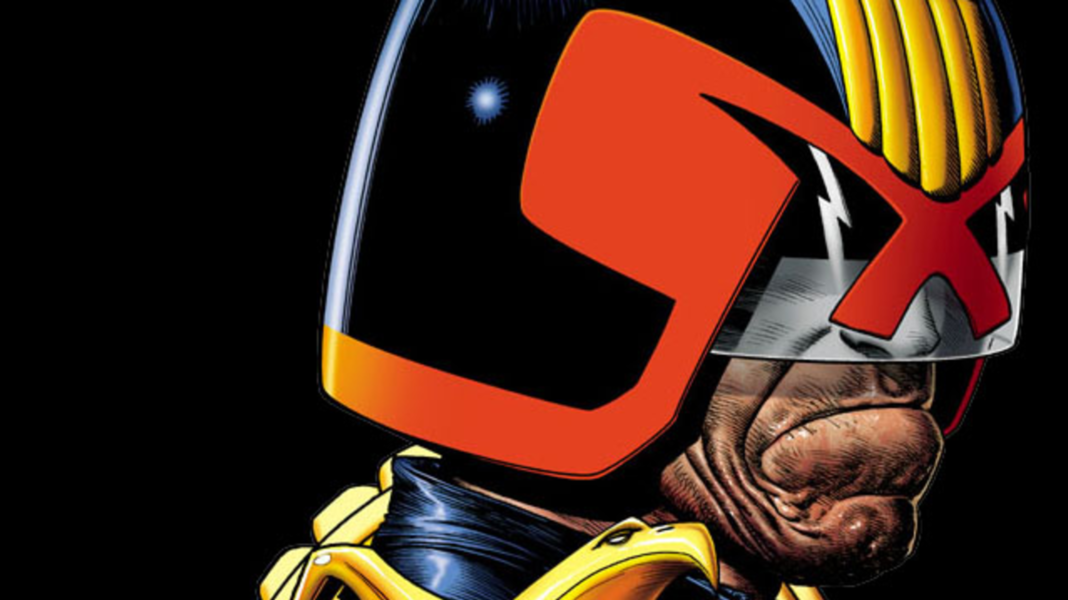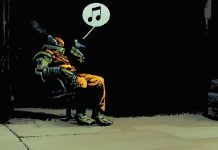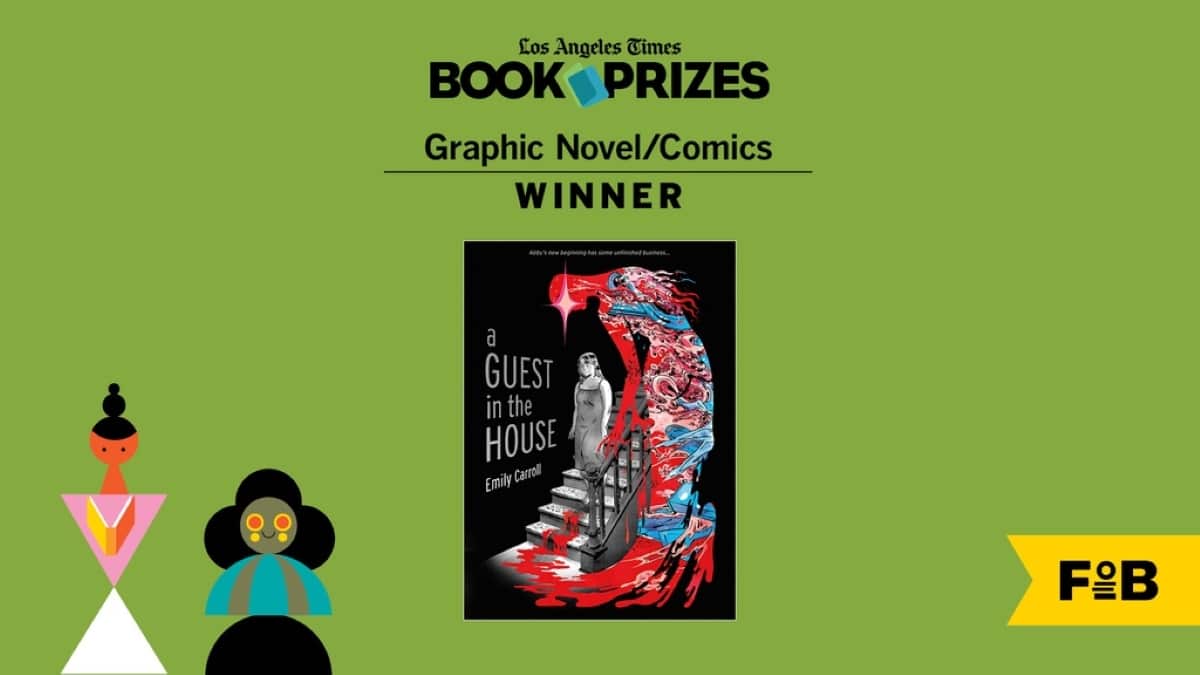By Chloe Maveal
2000AD’s San Diego Comic-Con panel “Judge Dredd: Supercop or Satire” went from good to great as the traditionally amusing panel delved into a much broader and deeper discussion of not only Judge Dredd as an example of absurdist humor, but how the character is a symbol of police fascism that is often lost on current-day readers.
Moderated by journalist Rosie Knight, panelists included fellow journalists Graeme McMillan, Joelle Monique, and The Beat’s own Ani Bundel, as well as creator and editor Christina “Steenz” Stewart, 2000AD artist I.N.G. Culbard, and Rebellion/2000AD publicist Mike Molcher.
Knight introduced the theme of the panel by diving into her own reasoning behind why the character is sometimes hard to interpret: “I read a lot of Judge Dredd when working at a comic shop. But also I saw that a lot of creators had worked on Dredd over the years…so it really makes a difference when you read it as to what your interaction with the comics seem to be.”
“Oh totally,” replied Steenz. “It’s all buzz words with little nuance. ‘Freedom. Justice. Law.’ What kind of law? What do you even mean? I think depending on how you read it, that can mean something different. To me, it’s absolutely ridiculous, but someone more militant might understand better.”
Molcher chimed in by commenting that more often than not, they don’t mean justice: “It means the authoritarian boot. You just don’t question any of it.”
“Getting the satire of Judge Dredd as a kid too quite a while for me. I’d summer in a country where they used to drag people around the streets and beat the hell out of them,” added Culbard. “But also we had a subversive view to the police over there. I can’t really translate it but, it’s ‘Smurfs’ because they were dressed in blue. So we had our way of satirizing the police that were causing all of this brutality.”
“I mean, for me as a kid it was an adventure comic. But going back and reading it now it’s actually pretty horrifying,” added McMillan.
The panel went on to discuss the nature of how various audiences can relate or find ties to Dredd as a character. “For a lot of American audiences, their first experience was the 1995 movie,” remarked Bundel. “[Sylvester] Stallone was the man who made Rambo movies and Rocky movies. He’s not exactly into the subtlety of satire. That’s what happens when you adapt these things to on-screen viewing. A lot of people look at it and say, ‘Wait…what satire?’”
With that point on the table, the panel then evolved into something surprising: the idea that satire is more difficult based on your experience with the subject being satirized. And in this case, that’s the police.
“We keep using the word ridiculous but even Garth [Ennis]’ run doesn’t actually seem that ridiculous now,” said Steenz. “I think what needs to happen is that Dredd needs to evolve so we can see from another point of view. We need to make satire of what’s happening now — which is hard to do now because 2019 is wild. But in order for it to be satire it needs to be elevated.”
A lot of the audience seemed to agree with this statement and Monique followed up by asking Molcher how 2000AD reacts when fans of the series don’t understand that it’s meant to be a satire.
“At the heart of the deal that judges offer is the question of what you’re willing to give up. That’s a question that is being asked by a lot of western governments,” said Molcher. “Satire says more about the person consuming it than it does the person who created it. So when we have those people who say that what we need right now is Judge Dredd, then that speaks a lot to the price you’re willing to pay for what you want. It’s an oppressive system who treats people lesser because they’re not privileged. That for me continues to be at the heart of why Judge Dredd is still relevant.”
“It’s been satire at some points,” said Monique. “But in reality this series is what happens when you put someone privileged in a bad neighborhood, give them a gun, and tell them to make sure people are behaving. How is that satire? I grew up seeing things like that.”
The panel came to a slow close as all panelists seemed to agree that while Judge Dredd holds its relevance as a burlesque performance of police influence, it’s time for more people to read between the lines.
“These panels are important because these are satire,” said Knight. “They’re going to go online and have their tirade over that being said, but as much as we would like to leave things up to the reader as artists, it’s our duty to explain why this is satire and why that fact is important.”







